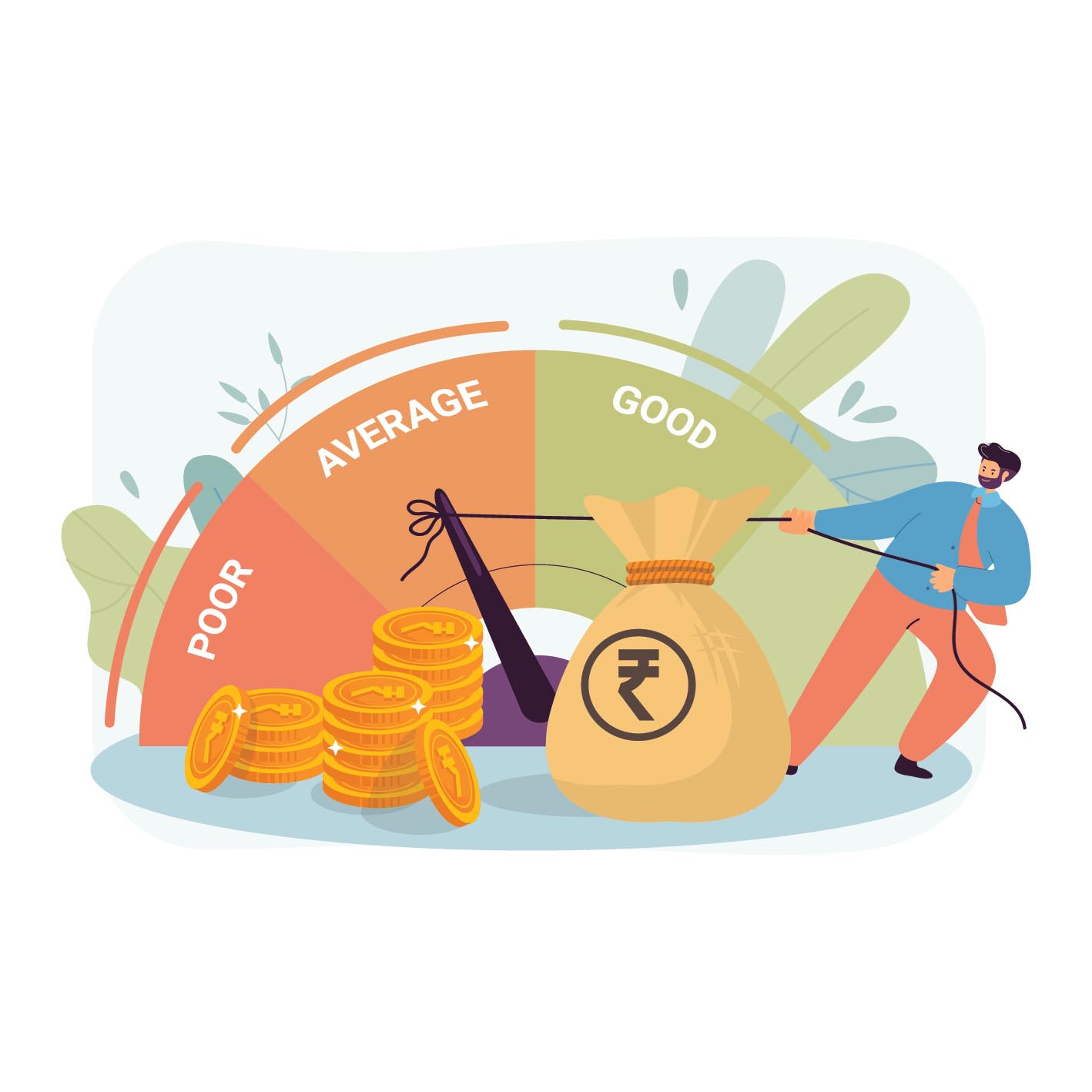What’s a CIBIL Score?
Based on your past behavior- of borrowing and repayment- your cibil score is used to anticipate your future credit behavior. Acronym for Credit Information Bureau India Limited and calculated by Transunion CIBIL Credit Bureau, tell your numerical ability to repay loans.
Based on 36 months of your credit behavior, the primary factors affecting your cibil/credit score include- payment history, credit history, and credit usage to name a few.
Spanning over a range of 300-900, a good cibil score lies near 900. Many banks have a high threshold to approve loans- for instance, at some banks, only people with a cibil score above 700 are eligible for loans.
Why Does the CIBIL Score Matter?
Your cibil score is the first impression when you apply for a loan. A score of 700 and above validates your ability to repay your business loans in time. A low score may lead to the rejection of your application in the first step.
Indicating your creditworthiness, the benefits of a good CIBIL score for business loans are stated as follows –
● Quicker loan sanctioning
● Better credit card deals with a high upper limit
● The cheaper rate of interest on loans
● Access to high long-tenure collateral-free loans
● Leverage discount of loan processing fee and other negotiations
To aid your business’ financial growth, it is essential to maintain a good cibil score.
Factors Affecting your CIBIL Score
Whilst many factors affect your cibil score, stated below are two of them that are not taken seriously by borrowers-
1. Credit Inquiries- The lender checks the number of times you have run credit inquiries at different institutions. Running a lot of inquiries-necessary or unnecessary- is detrimental to your score.
2. Past repayment- In contrast to the popular notion, taking debt is not weak, just not repaying them in time is weak. To keep your credibility and cibil score intact, it’s essential to always repay your debts in time.
How to Improve Your CIBIL Score
Since your credit score is the first impression in a loan application, here’s a guide for you to improve your CIBIL score-
1) Repay your dues in time
Your ability to repay your dues timely is a testimony to your credibility. It is vital to be disciplined in repaying as it drastically affects your credit score. Late repayment leads to both penalties and low scores.
2) Set credit limit
It may seem tempting to take on loans of large amounts to meet your business expenditures, but it is not necessarily the best option. It is safe to set a credit limit for yourself and use less than the limit to maintain your credit score.
3) Opt for long tenure loans
Your probability of being a defaulter in long-term loans is low as the EMI is low and easy to pay. The burden of EMI gets elongated and hence less dense.
4) Balance secured and unsecured loans
In secured loans, you provide the lender with collateral showing confidence in your ability to repay a loan. In unsecured loans- like personal loans, you don’t put collateral with the lender. Maintaining a balance of both these loans is essential to ramp up your credit score.
5) Avoid multiple loans at a time
Considering your household as well as business needs, you may find it impossible to run just one loan at a time. Maintaining the least number of loans affects your credit score positively as the lesser the loans, the lesser are your chances of being a defaulter.
6) indulge in loans for loan
Financially unaware people tend to take up a loan to repay another loan’s dues and get caught up in the vicious cycle. It is important to keep your ability in mind when applying for a loan.
7) Create a credit history
You may have a notion that not taking a loan helps maintain your credit score as you are not prone to be a defaulter. It’s not true. To have a cibil score, you need to have a credit history.
In a nutshell, to ramp up your credit score, it’s essential to take loans, repay them on time, check your cibil report, and be vigilant.




